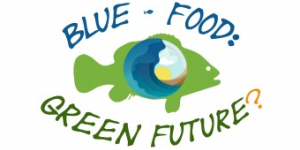One of the key challenges in marine food production we experience is capacity strengthening in small-scale fisheries. It’s part of the challenge of getting out of the crisis mode in global fisheries to where we want to be in terms of lifting people out of poverty and living in harmony with the ocean and nature at large. Poverty is not confined to the global south. Significant segments of the population in the global north are in distress, even though at least some social programmes buffer the effects. This happens in a world more and more dominated by agenda setting by global companies, which often have more budget, data and operational capabilities than entire countries. When most public policies favour industrial fishing, processing and large-scale marketing, spaces for small-scale fisheries are on the retreat. They can not play their natural role as tangible social, cultural, economic engines of prosperous and diversified development in coastal zones. While small-scale fishers (men and women) are still the majority of workers in the industry, even in industrialised countries, their numbers and room for manoeuvre are shrinking fast, thus eroding also their electoral potential and attention by policy makers.
Workers in the highly contested salmon industry in Chile took to the streets are therefore joining mass protests about price hikes and other anti-social policies of the government that led to the cancellation of the planned Climate Summit and its move to Madrid. Is that a harbinger for a fresh opening to consider a wider range of options for development aiming at a fair sharing of costs and benefits?
As far as working for viable and prosperous futures for small-scale fisheries are concerned, Mundus maris is convinced that it is essential to invest in strengthening the capabilities of women and men in the sector to improve their business through better understanding cooperation, organisation for collective action along the value chain and in sector governance.
Increasing demand on space and resources in coastal zones are crowding out productive and sustainable smaller-scale operators in favour of large-scale schemes of tourism, port and mineral development and more. Working for a more equitable and just repartition of rights and obligations requires supporting the organisational and negotiating capacity development of traditional communities. Help make a difference by supporting this work with a weekly or monthly donation to:
Mundus maris asbl (beneficiary)
Belfius Bank, Rue de Linthout 224, 1040 Brussels, Belgium
IBAN: BE54 0688 9178 6297 BIC: GKCCBEBB
Contact us any time at info@mundusmaris.org. Thank you!
Cornelia E. Nauen and the entire Mundus maris team

